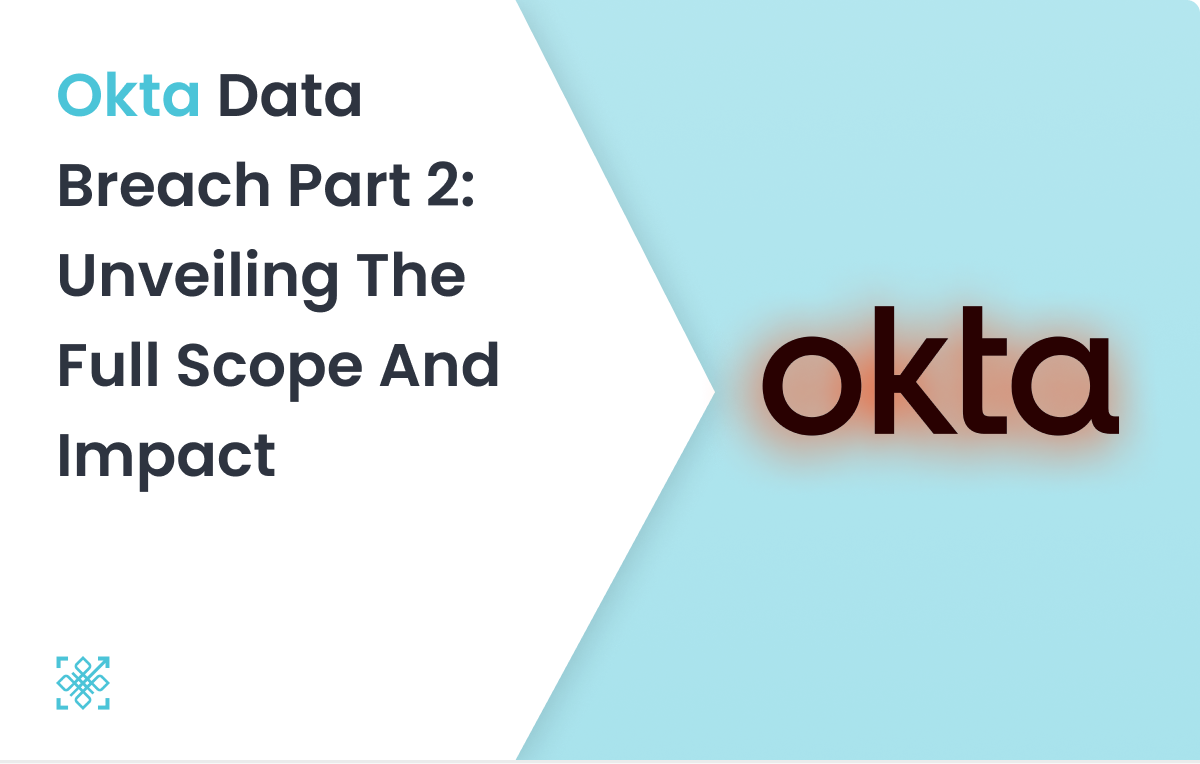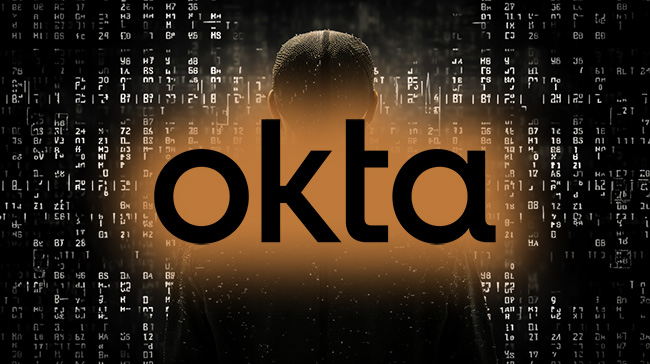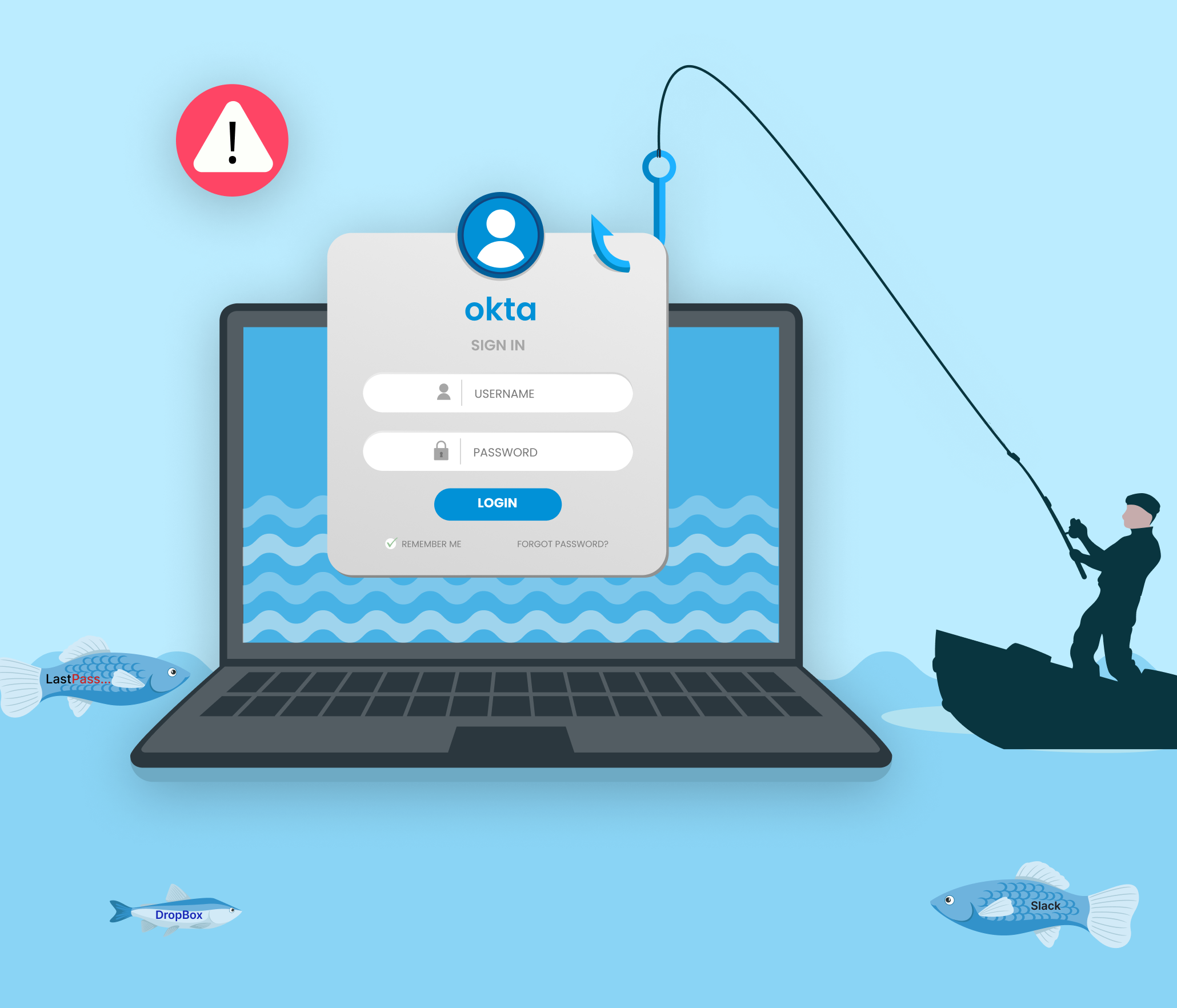Connect with Us!
Subscribe to receive new blog post from PureID in your mail box

In late October, Okta, reported a cybersecurity breach that initially appeared to affect less than 1% of its customers. However, recent revelations indicate a far-reaching impact, affecting 99.6% of users in the customer support system. This blog post delves into the broader implications of this
Contrary to initial estimates downplaying, it has now been disclosed that hackers successfully ran a report on September 28, 2023. It contained sensitive information about all Okta customer support system users. The compromised data had names, email addresses, company names, contact phone numbers, and other details, Impacting 100% of Okta Workforce Identity Cloud (WIC) and Customer Identity Solution (CIS) customers. The only exception being those in highly sensitive environments such as the government.

Despite the significant dip in Okta's stock prices when the breach was first reported in October, resulting in a temporary loss of approximately $2 billion in market capitalisation, the financial fallout seems to be hovering in the single digits. Okta's latest quarterly financial report indicates a more than 20% increase in revenues for the quarter ending October 31, demonstrating a robust financial performance despite the security incident.
The discrepancy between the initially reported 1% impact and the actual 99.6% of affected users reveals a concerning lapse in transparency. Okta customers are now grappling with the realization that threat actors may have access to their names and email addresses, exposing them to the risk of phishing and social engineering attacks. While Okta assures that there is no direct evidence of exploitation, they urge customers to remain vigilant. This stolen information could be weaponized for targeted cyber scams.
With 99.6% of users having their names and email addresses exposed. These stolen data poses a heightened risk of phishing and social engineering attacks.

Cyber security experts emphasise the need for Okta customers, especially administrators, to enforce multi-factor authentication (MFA) and consider the use of phishing-resistant authentication. The potential for threat actors to exploit this information for targeted attacks underscores the importance of proactive security measures on the customer's end.
In the aftermath of the Okta breach, customer trust in identity management systems faces a critical test. As emphasised by the mantra "The 'S' in IAM stands for Security", the true scale of the incident challenges the reliance on auto-saved passwords, demonstrating the vulnerability of conventional systems. We urgently advocate for the adoption of passwordless authentication. For those catching up, our previous post details the Okta breach, highlighting the imperative to #gopasswordless . This approach not only addresses current vulnerabilities but also aligns with the evolving demands of a secure digital landscape.
Subscribe to receive new blog post from PureID in your mail box